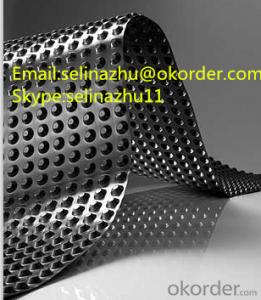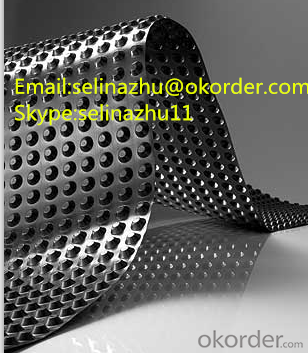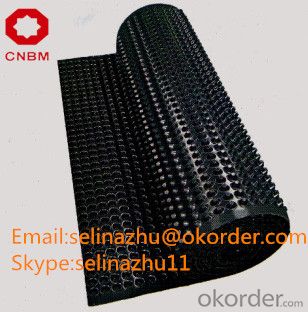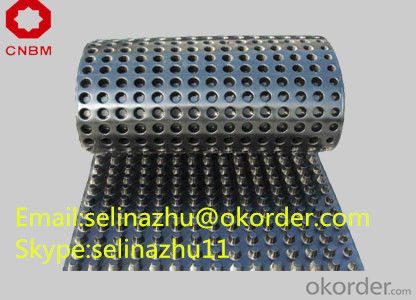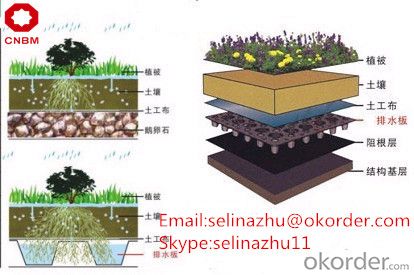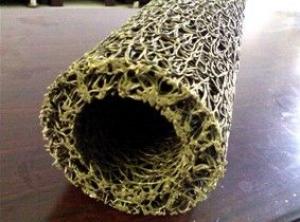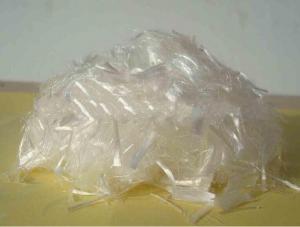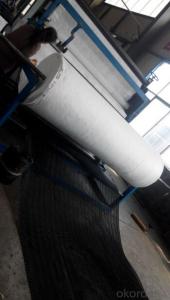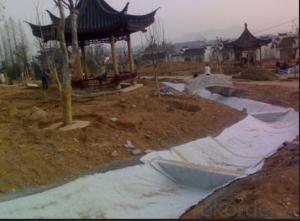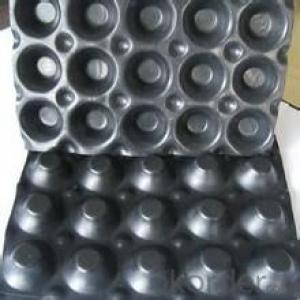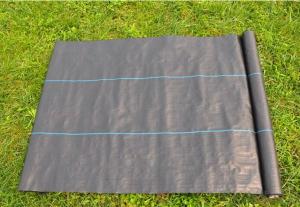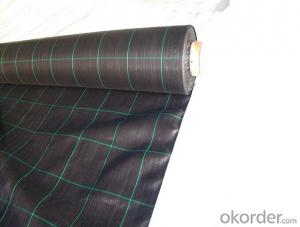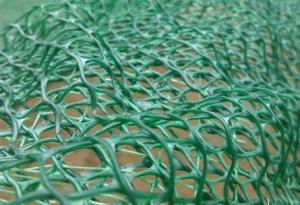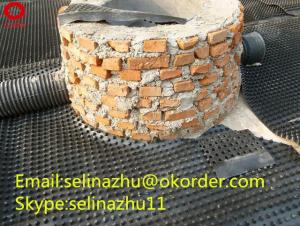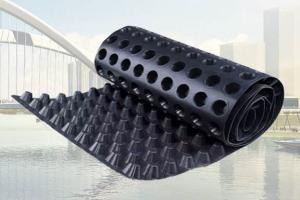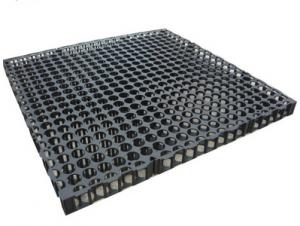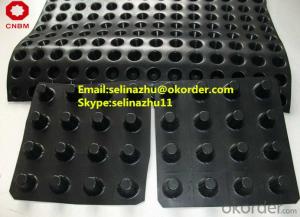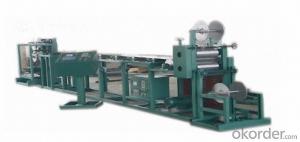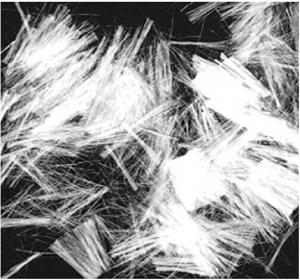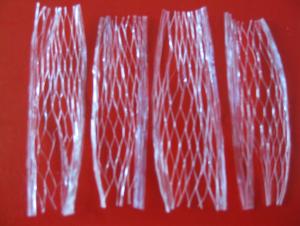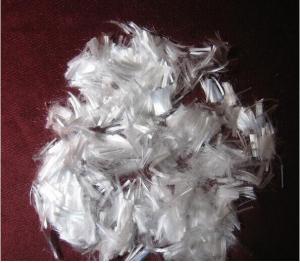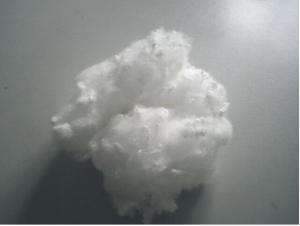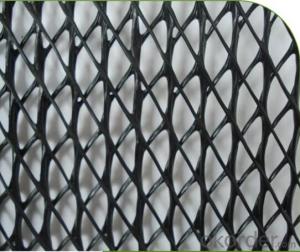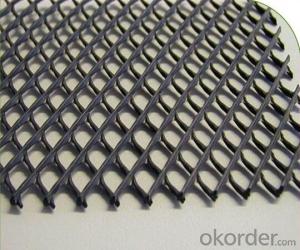Residential Drainage System Dimple Drainage board
- Loading Port:
- Qingdao
- Payment Terms:
- TT OR LC
- Min Order Qty:
- 3000 m²
- Supply Capability:
- 500000 m²/month
OKorder Service Pledge
OKorder Financial Service
You Might Also Like
Specification
Plastic Dimple Drainage Sheet Introduction
Plastic dimple drainage sheet is made of high molecular, produced by extrusion and adsorption. The tri-diamensional space can drain gas and fluid. It is multi-functional material, can form channels for water and gas easily, which is sound insulation and vibration isolation. In the field of civil construction can be widely used in building roof system layer overhead, planted roof drainage ventilation, basement waterproof system protection, thermal and moisture isolation of the interior surface, road and rail tunnel drainage protection. In the urban land, space, material resources are becoming scare today, plastic dimple drainage sheet to provide the most valuable option.
Plastic Dimple Drainage Sheet Application
Waterproofing system of road
Railway tunnel and underground
Basement of building
Roof garden
Other waterproofing and drainage construction works
Plastic Dimple Drainage Sheet Advantage
-Low cost, High efficiency
-Durable, anti age
-Chemical resistance
-Resistance to puncture of plant roots
-Diverse application
-Simple installation and quality guaranteed
Plastic Dimple Drainage Sheet Specifications
| No. | Item | Technical Index | |||||
| CMAX-H10-1.0 | CMAX-H20-1.0 | CMAX-H10-1.5 | CMAX-H20-1.5 | CMAX-H10-2.0 | CMAX-H20-2.0 | ||
| 1 | Board Thickness, mm | 1.0 | 1.0 | 1.5 | 1.5 | 2.0 | 2.0 |
| 2 | Depth of Dimple, mm | 10 | 20 | 10 | 20 | 10 | 20 |
| 3 | Tensile Strength, N/125px ≥ | 400 | 400 | 500 | 500 | 700 | 700 |
| 4 | Elongation at Break, % | 200 | 200 | 300 | 300 | 400 | 400 |
| 5 | Tensile Strength of Three-dimensional, Kpa | 400 | 320 | 450 | 370 | 500 | 420 |
| 6 | Dimension Stability, % | ±2 | |||||
| 7 | Low Temperature Bending | no creases in low temperature -35℃ | |||||
| 8 | Longitudinal Flow Capacity, cm3/s (water pressure 5KPa) | 5.6 | 8.6 | 5.6 | 8.6 | 5.6 | 8.6 |
| 9 | Longitudinal Flow Capacity, cm3/s (water pressure 350KPa) | 15.2 | 18.2 | 15.2 | 18.2 | 15.2 | 18.2 |
Plastic Dimple Drainage Sheet photos
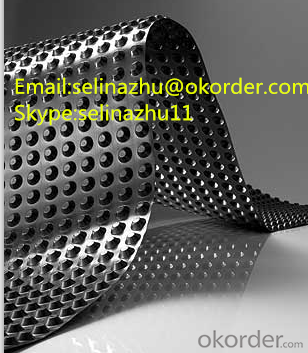
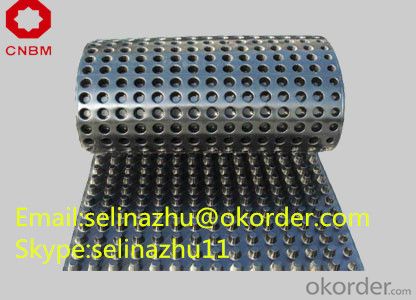
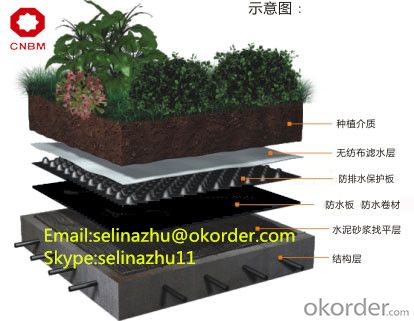
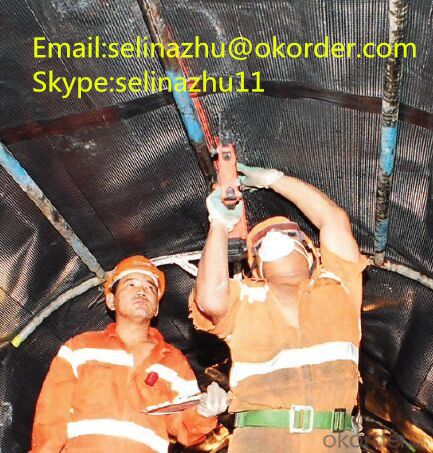
FAQ
1. Which payment do you accept?
For you convenience, our payment can be L/C, TT
2. Is free sample available?
We can supply free samples. You'll just need to pay for express cost.
3. Why choose CNBM?
CNBM is short for China National Building Material Corporation, is a China state owned huge corporation, exported from 1984. CNBM own the largest geosynthetics production base about 667000m2 in China and have about 120production line for all geo materials. For geotextile, we have 38 production lines, our production capacity each day can be 300,000m2.
We passed CE certificate and reaches ASTM standard, have more than 120 customers in EU, USA, Ocean, Africa and all markets. We’ll be your reliable partner in quality and after sales service.
3. How about your quality?
We have strict quality control system, we make testing on incoming raw material and finished products. Your third party testing is also welcomed. With high quality, our products are used on government projects at home and abroad. Our product quality is accepted by clients from all over the world. Warmly welcome your samples requirement or trail order.
- Q: What are the key properties to consider when selecting geosynthetic materials for earthwork?
- When selecting geosynthetic materials for earthwork, it is important to consider their key properties such as strength, durability, permeability, and compatibility with the soil and other materials. These properties determine the material's ability to withstand the forces and stresses imposed by the earthwork, its lifespan, its ability to allow water flow or drainage, and how well it integrates with the surrounding environment.
- Q: What are the different types of geotextile fabric installation methods?
- There are several types of geotextile fabric installation methods, including trenching, overlaying, and wrapping. Trenching involves digging a trench and placing the fabric at the desired depth before backfilling. Overlaying involves placing the fabric over a prepared surface and then covering it with another layer of material. Wrapping involves encasing a structure or object with the fabric to provide protection and stability. These installation methods are used to enhance soil stabilization, erosion control, and drainage in various civil engineering and construction projects.
- Q: What is the purpose of using geosynthetic reinforcements in retaining wall construction?
- The purpose of using geosynthetic reinforcements in retaining wall construction is to enhance the stability and strength of the wall. These reinforcements help distribute the lateral forces exerted by the retained soil, improving the overall performance and longevity of the structure. Additionally, geosynthetics can help control soil erosion, minimize settlement, and reduce the risk of wall failure.
- Q: How do geosynthetic products contribute to soil erosion prevention in vineyards?
- Geosynthetic products, such as geotextiles and geogrids, play a crucial role in preventing soil erosion in vineyards. These products are used to stabilize the soil and reinforce slopes, preventing them from eroding due to water runoff and other environmental factors. Geotextiles act as a barrier, reducing the velocity of water flow and preventing soil particles from being washed away. Geogrids provide structural support to the soil, increasing its stability and resistance to erosion. By incorporating geosynthetics in vineyard design and construction, soil erosion is effectively minimized, ensuring the longevity and sustainability of the vineyard ecosystem.
- Q: What are the benefits of using geosynthetic panels in slope stabilization?
- Using geosynthetic panels in slope stabilization offers several benefits. Firstly, these panels provide a strong and flexible reinforcement system, effectively distributing the weight and stress on the slope surface. This helps to prevent soil erosion and slope failure, ensuring long-term stability. Secondly, geosynthetic panels are easy to install, saving both time and labor costs. They can be quickly deployed, reducing the disruption to the surrounding environment. Additionally, these panels are durable and resistant to weathering, making them suitable for various climatic conditions. Lastly, geosynthetic panels are a cost-effective solution compared to traditional methods of slope stabilization, offering a sustainable and efficient option for managing slope stability.
- Q: Are there any earthwork products specifically designed for pipeline projects?
- Yes, there are earthwork products specifically designed for pipeline projects. These products include pipeline mats, trench shoring systems, and erosion control measures. These specialized products help to ensure the stability and safety of pipelines during construction and maintenance activities.
- Q: What is the civil engineering material
- Some material shopping guide
- Q: How are earthwork products different from regular construction materials?
- Earthwork products are different from regular construction materials because they are derived from natural sources such as soil, clay, and gravel, whereas regular construction materials are often manufactured or processed materials like concrete, steel, or bricks. Earthwork products are primarily used for shaping and modifying the terrain, such as grading, excavating, or filling, whereas regular construction materials are used for structural purposes, like building foundations, walls, or roofs.
- Q: Can earthwork products be used in retaining wall construction?
- Yes, earthwork products can be used in retaining wall construction. Earthwork products such as geogrids, geotextiles, and geocells are commonly utilized to reinforce and stabilize retaining walls. These products help to prevent soil erosion, improve drainage, and increase the overall strength and stability of the retaining wall.
- Q: What are the installation timeframes for earthwork products?
- The installation timeframes for earthwork products can vary depending on the specific project requirements and scope. It is best to consult with a professional contractor or supplier who can provide accurate estimations based on the specific earthwork products and project specifications.
Send your message to us
Residential Drainage System Dimple Drainage board
- Loading Port:
- Qingdao
- Payment Terms:
- TT OR LC
- Min Order Qty:
- 3000 m²
- Supply Capability:
- 500000 m²/month
OKorder Service Pledge
OKorder Financial Service
Similar products
Hot products
Hot Searches
Related keywords
